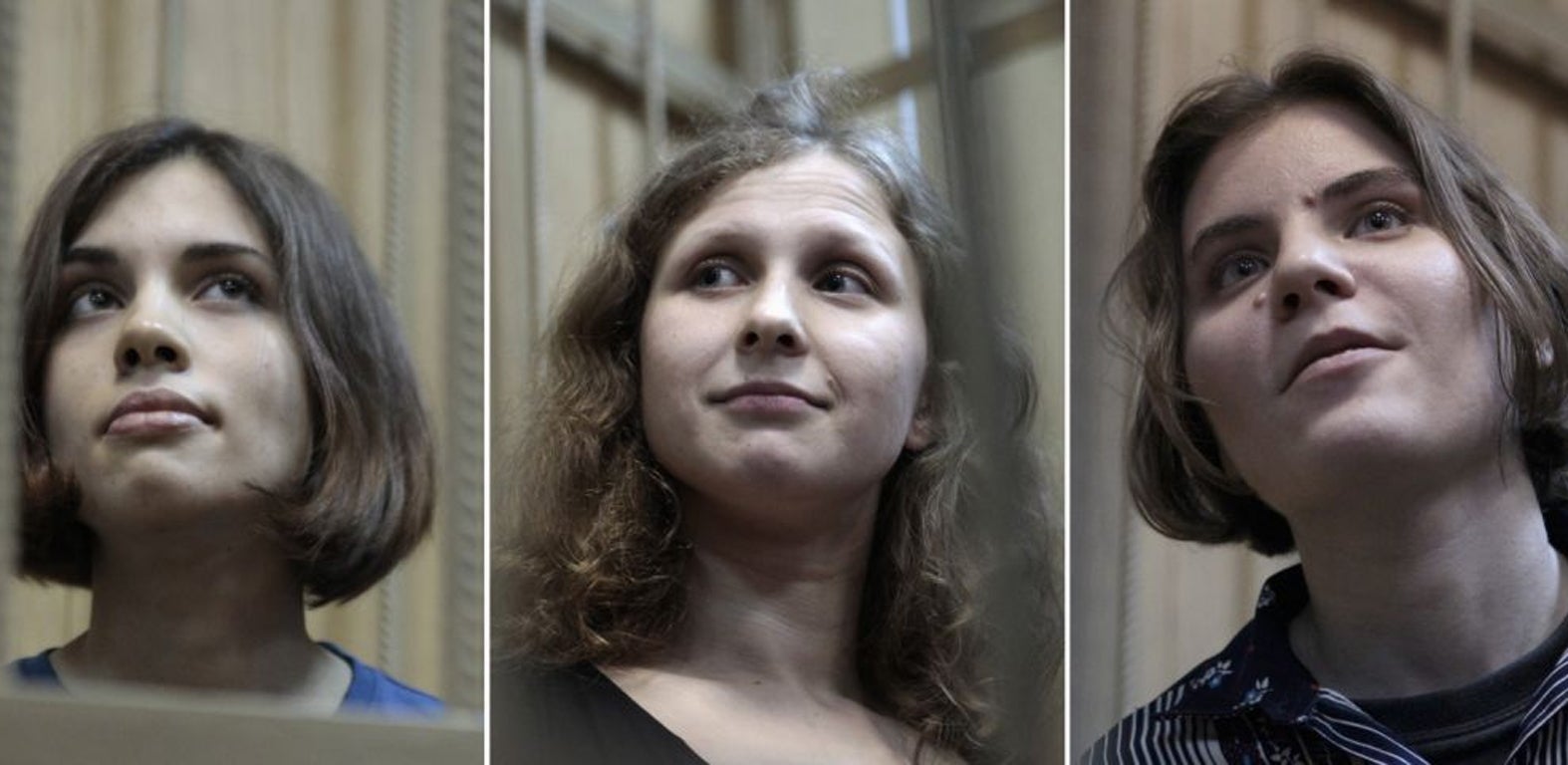Shaun Walker: How a punk rock Riot made a big political noise
World Focus

Your support helps us to tell the story
From reproductive rights to climate change to Big Tech, The Independent is on the ground when the story is developing. Whether it's investigating the financials of Elon Musk's pro-Trump PAC or producing our latest documentary, 'The A Word', which shines a light on the American women fighting for reproductive rights, we know how important it is to parse out the facts from the messaging.
At such a critical moment in US history, we need reporters on the ground. Your donation allows us to keep sending journalists to speak to both sides of the story.
The Independent is trusted by Americans across the entire political spectrum. And unlike many other quality news outlets, we choose not to lock Americans out of our reporting and analysis with paywalls. We believe quality journalism should be available to everyone, paid for by those who can afford it.
Your support makes all the difference.When a group of feminist punk rockers calling themselves Pussy Riot performed a stunt in Moscow's biggest cathedral in late February, some people found the incident amusing and politically poignant, while others thought it was a grotesque insult.
What nobody could have imagined was that, months later, the performance would evolve in to one of the most hotly debated political events in recent Russian history.
The incident, captured on a video that surfaced on YouTube, involved five women in balaclavas rushing into the Christ the Saviour Cathedral in Moscow, storming the altar, and singing an out-of-tune punk anthem asking the Virgin Mary to kick out Vladimir Putin from office.
Two weeks after the clip went viral, three of the participants were arrested, and they have been in jail since, awaiting the start of a trial that could see them locked up for seven years on charges of "hooliganism". Judges have refused applications for bail, even though two of the women have young children. As the case has stretched on, more and more Russians have come over to their cause.
A number of cultural figures have written an open letter asking for the release of the women, including the actress Chulpan Khamatova, who threw her support behind Mr Putin before the elections in March.
Some Orthodox priests have also voiced their support for the women, and the former Finance Minister and long-standing friend of Mr Putin, Alexei Kudrin, said this week that keeping the women in jail is an act of "pointless cruelty".
"It should be dealt with by a fine of 1,000 roubles [£20]," said Nikolai Polozov, a lawyer for one of the women. "But because top figures like Putin and the Patriarch came out and criticised their actions, the courts took it as a signal that they should act harshly."
The businessman and financial backer of The Independent, Alexander Lebedev, was also in court on Monday, as one of a number of people who agreed to guarantee that the women would appear in court if released on bail. He said that he did not want to comment on the actual substance of the case, but that keeping the women in custody prior to the trial is incorrect. "I think they [the courts] are worried that they might offend someone in the vertical," he said. "After all this was a political protest." The "vertical of power" is the name given to the top-down chain of command in Russia, with Mr Putin at the top.
"People are sick of it, and everyone I know in the church wants them out of jail as soon as possible," said Andrei Zolotov, a journalist and specialist on the Orthodox Church. Despite this, Patriarch Kirill, the leader of the Church, has refused to call for the release of the women.
With the pre-trial formalities now largely concluded, hearings will start on or before 24 July. Prior to the most recent hearing, there was a rumour that the women were to be released, which Mr Polozov said had been conveyed to him by "a very reliable high-placed source".
This did not come to pass, and it seems that there is now a conflict between those who want the women to be given a jail term, and those who realise that the case has become counterproductive.
For now, the former appear to be dominant, said Mr Polozov. "As we say in Russia, the Kremlin has a lot of towers, and they are not always able to come to an agreement with each other."
Join our commenting forum
Join thought-provoking conversations, follow other Independent readers and see their replies
Comments